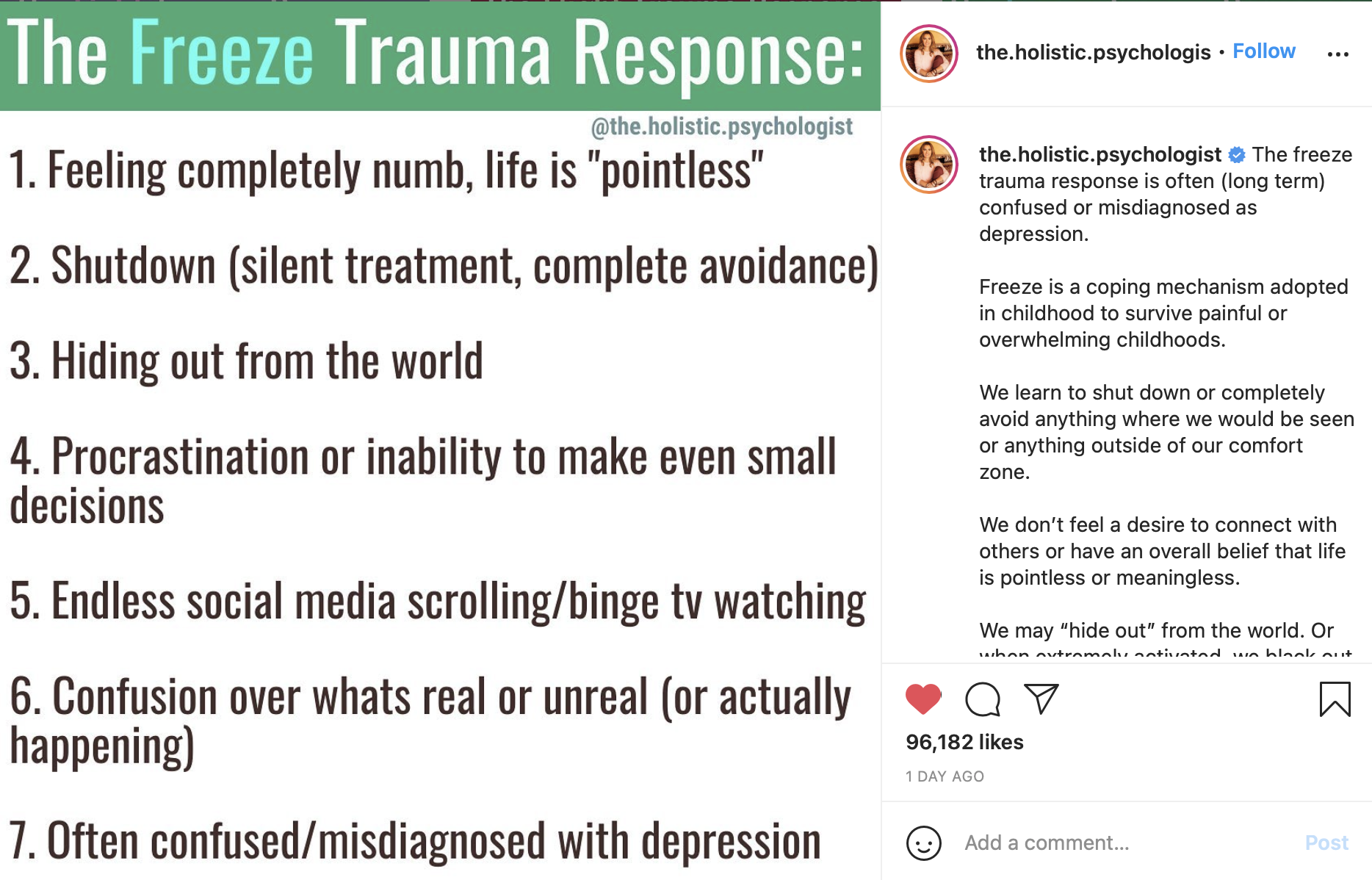Mental health tips for (not only) artists, by a recovering overthinker
May 12th 2022

Disclaimer: The article does not contain any affiliate links and the views expressed here are solely the author's.
Aren’t we Homo Sapiens fantastic? Our hypercomplex brain lets us create magical things, like the Eiffel Tower or unicorn-flavored frappuccinos.
At the same time, it has the tendency to sabotage itself with negative thoughts, disaster scenarios or rehashing of old pain (I’m an expert on this one).
Portrait of a Sad Alien (by Ramon Martinez)
Fact check: Are artists more prone to anxiety?
If you feel more prone to anxiety and overthinking than others, you are onto something; this Yale study found that artists are more likely to display “psychological vulnerabilities” like anxiety, depression, and stress.

If you’re reading this, chances are that you are a creative person - and your nagging feeling that you’re more anxious than anybody else is now confirmed by a Yale study.
(At least you know you’re not paranoid on top of everything else.)
Now, get this: a 2020 study found that 62% of respondents suffer "some degree of anxiety".
I was shocked by this figure.
Are you telling me that 38% of people out there are anxiety-free? Who are these people and what supplements are they taking?
Here’s one statistic I figured out myself: 9 out of 10 mental health experts (aka Instagram influencers) recommend self-love, looking at the bright side, having a meditate and doing a yoga. Also: #mindfulness!!!
Trying to get rid of anxiety gives me anxiety
If you’re like me, a sensitive overthinker, you might be sick of well-meant advice and “top 10” lists of things you have to try for your mental health.
These lists just make me feel like there is more stuff I need to do and, frankly, that makes me anxious.
Doing stuff is everything I stand against.
Relax, fellow overthinker.
Instead, I’m going to share a few simple techniques that help right away - and don't really involve doing anything at all.
The last thing we want here is more pressure, so we’ll do this very gently.
There's me, and there's anxiety
When anxiety comes a-knocking, this is what I do: take a look at it.
Even when anxiety feels overwhelming, there is a part of you that is able to perceive it. That means -- there is a part of you that is not it.
If you can feel that, congratulations. You have created a little separation between yourself and your anxiety. (This means you're winning.)
"Looking" at your anxiety can mean one or both of these:
- observing your physical sensations, like chest tightness or clammy hands
- becoming aware of the thoughts in your head, like "This is a disaster, I am doomed, I will never recover from this failure, etc."
Shining a watchful spotlight at these sensations and thoughts immediately takes away a little bit of their power.
Without doing that, you are completely identified with the scary feelings and succumbing to them. You become your feelings.
But that is a trap.
If you believe your feelings completely, your anxiety has you just where it wants you.
It takes just a bit of awareness to remember that you are, in fact, not your feelings.
Rather, your feelings are something that is happening to you, that you are experiencing at the moment.
Realize that - and right away the bite of your anxiety is lessened.
Hi, I'm your feeling. Call me Bob.
In a yucky feeling's clammy grasp, it can be difficult to poke your head out and see anything else.
So I find it helpful to give my feelings names.

For starters, you can choose from these common labels:
"I am feeling nervous / scared / anxious / angry / ashamed / overwhelmed / sad."
(Note: It is crucial that you say "I am feeling XYZ" as opposed to "I am XYZ". You are not your emotion - you are just a human being experiencing a temporary bubbling of unpleasant chemicals.)
When you’re in the midst of it, your feelings are overwhelming. But calling them by their name does a couple of things.
- Firstly, it moves your brain from OHMYGOD! PANIC! DEATH! to thinking outside of the feeling. Again, you are creating a little space between yourself and the feeling.
- Secondly, it reminds you that your feeling is describable -- and perfectly normal.
Naming your feeling gives it clearly defined borders and also a lifespan - because no feeling lasts forever.
In other words: This, too, shall pass.
Creatives, find inspiration in your anxiety
I recently tried an exercise with my 7-year old daughter.
After one episode of strong emotions, raised voices and a lot of tears, we talked about what happened.
"What came over us when we got so mad?" I asked her. "Is it a creature? What does it look like? Where do you think it is now? Do you think it's coming back?"
Afterwards, we sat down and drew our furious anger creatures.
The point to this exercise is not to produce the art of a lifetime (though you never know
The point is, again, to separate your true self from your emotion - and recognizing that you are not it.
Next time it comes, you might be a little bit faster in recognizing it for what it is: a fleeting feeling that comes and goes.
Since you are a creative person, you may even find a golden nugget of inspiration in the murky waters of your ugliest feelings.
Helpful resources
Lucky for us, it's 2022 and mental health is a thing. (Whereas 300 years ago talking about anxiety would probably get you burned at the stake.)
Even mainstream doctors now recognize terms like burnout and mindfulness, so the resources on mental health are virtually endless.
Here are a few I can recommend based on my experience: one app, one IG account, one supplement and one actionable step.
One App: Waking Up by Sam Harris

Founded by a neuroscientist and philosopher Sam Harris, Waking Up is an app that aims to "unlock your mind". In the world of mindfulness apps, Waking Up shoots the others out of the water IMO.
They offer a series of short, guided meditations made even for people who have never meditated before and view the whole thing with a bit of suspicion.
The membership costs $99 per year, though if you can't afford it, they offer a partial - or even full - scholarship. You just need to email their support to get it.
You can start with an introductory course and continue your practice as needed, including special lessons like "Meditation in an Emergency".
One IG account: The Holistic Psychologist
Dr. Nicole LePera is a clinical psychologist who explains how to incorporate self-awareness into your daily life.
I find her posts incredibly insightful and empathetic, with a lot of "she is talking about me!" moments.
She explains how common coping mechanisms from our childhood can be harmful later in life - and how to gently shed them.
One Supplement: Rescue Remedy Spray with Bach Flower Essences

This is my go-to in tough situations.
Formulated by Dr. Edward Bach in the early 1900s, Bach Flower Essences are watered-down extracts from the flowers of wild plants.
This spray is a mixture of five wildflowers developed to regain your mental composure with a few drops placed under your tongue or in water.
I love it, because it works - and I'm not alone, as you can see from thousands of 5-star reviews, like this one:

It is not habit forming, sugar-free and vegan.
(P.S. Another reason I know it works: people give it to pets to soothe them and swear that the results are incredible as well!)
One Action: Help Others
As clichéd as it is effective, positive deeds benefit the doer.
Giving a few coins to a street artist, donating your old coat to Goodwill or even smiling warmly at a random stranger - all these actions create a ripple of positivity in spacetime and you will be rewarded with a little squirt of dopamine.

Here are 100 random acts of kindness you can do today, including holding the door open for somebody or (my favorite!) writing a letter of appreciation to your mail delivery person.



